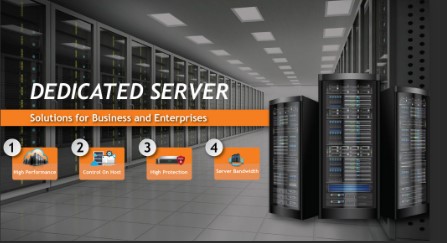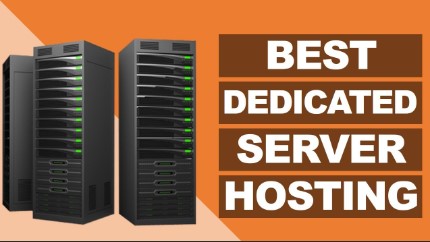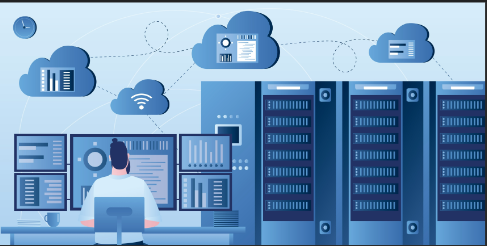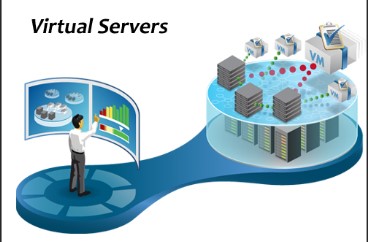Managed Server Services
In the ever-evolving landscape of technology, managed server services have emerged as a cornerstone of modern IT infrastructure.
These services offer a suite of solutions designed to alleviate the complexities and challenges of server management, providing businesses with the expertise and resources needed to thrive in a digital-first world.
The Role of Managed Servers in Modern IT Infrastructure
Managed servers play a pivotal role in the architecture of contemporary IT ecosystems. They ensure that critical applications and data are available, secure, and operating at peak efficiency.
By leveraging managed server services, businesses can offload the burdens of server maintenance, monitoring, and optimization to seasoned professionals. This shift not only enhances operational efficiency but also allows IT teams to focus on strategic initiatives rather than routine tasks.
Why Businesses are Turning to Managed Server Services
A confluence of factors drives the migration towards managed server services. Businesses are recognizing the limitations of in-house server management, particularly as IT environments grow more complex.
Managed services offer scalability, reliability, and expertise that are difficult to replicate internally. Furthermore, the cost savings from reduced downtime, enhanced performance, and proactive maintenance are compelling incentives for adoption.
Key Benefits of Opting for Managed Server Solutions
Managed server solutions provide a plethora of benefits, including:
– Enhanced Security: Managed services incorporate advanced security measures to protect against cyber threats.
– Cost Efficiency: By reducing the need for in-house IT resources and minimizing downtime, managed services deliver substantial cost savings.
– Reliability and Uptime: With constant monitoring and maintenance, managed servers ensure optimal performance and minimal interruptions.
– Expert Support: Access to skilled professionals who can quickly resolve issues and provide strategic guidance.
Exploring the Core Components of Managed Server Services
Comprehensive Server Monitoring: Ensuring Optimal Performance
Comprehensive server monitoring is a cornerstone of managed services. This involves continuous surveillance of server health, performance metrics, and potential issues.
By utilizing sophisticated monitoring tools, managed service providers can detect and resolve problems before they impact operations, ensuring seamless performance and reliability.
Automated Backups: Safeguarding Your Data
Data is the lifeblood of any organization. Managed server services offer automated backup solutions that ensure your data is regularly and securely backed up. This safeguard protects against data loss due to hardware failures, cyber-attacks, or human error, providing peace of mind and business continuity.
Advanced Security Protocols: Protecting Against Threats
In an age of escalating cyber threats, robust security measures are essential. Managed server services deploy advanced security protocols, including firewalls, intrusion detection systems, and regular security audits. These measures protect your servers from unauthorized access, malware, and other vulnerabilities, keeping your data safe.
Software Updates and Patch Management: Staying Current and Secure
Keeping software up-to-date is crucial for both performance and security. Managed services handle all aspects of software updates and patch management, ensuring that your servers run the latest versions with all necessary security patches applied. This proactive approach mitigates the risk of security breaches and system failures.
Choosing the Right Managed Server Service Provider
Assessing Your Business Needs: Performance, Security, and Budget
Selecting the right managed server service provider begins with a thorough assessment of your business needs. Consider required performance levels, security requirements, and budget constraints. This evaluation will help you identify providers that can offer tailored solutions aligned with your objectives.
Key Features to Look for in a Managed Server Provider
When choosing a provider, look for key features such as:
– Comprehensive Monitoring: Ensure the provider offers round-the-clock monitoring.
– Security Expertise: Look for advanced security measures and protocols.
– Scalability: Choose a provider that can grow with your business.
– Support: 24/7 customer support is essential for prompt issue resolution.
Comparing Top Managed Server Providers: Pros and Cons
It’s important to compare the leading providers in the industry. Evaluate the pros and cons of each based on factors such as service offerings, pricing, customer reviews, and support capabilities. This comparative analysis will help you make an informed decision.
Evaluating Customer Support: The Importance of 24/7 Assistance
Reliable customer support is critical in managed server services. Ensure the provider offers 24/7 assistance and has a reputation for responsive and effective support. This ensures that any issues are addressed promptly, minimizing potential disruptions to your business.
Tailoring Managed Server Services to Your Business
Customization Options: Creating a Solution That Fits Your Needs
One size does not fit all in managed server services. Look for providers that offer customization options, allowing you to tailor the services to your specific needs. This customization can include everything from server configurations to security protocols, ensuring a perfect fit for your business.
Scalability: Preparing for Future Growth
As your business grows, your IT needs will evolve. Choose a managed server service provider that offers scalability, allowing you to easily expand your server resources as needed. This flexibility ensures that your IT infrastructure can keep pace with your business growth.
Industry-Specific Solutions: Managed Services for Different Sectors
Different industries have unique requirements. Look for managed server providers that offer industry-specific solutions. Whether you’re in healthcare, finance, e-commerce, or another sector, specialized services can address regulatory requirements and other specific needs.
Case Studies: Success Stories of Businesses Using Managed Server Services
Real-world case studies provide valuable insights into the benefits of managed server services. Look for success stories from businesses similar to yours. These examples can demonstrate how managed services have helped companies achieve greater efficiency, security, and growth.
Maximizing the Benefits of Managed Server Services
Leveraging Expertise: How Managed Services Enhance Your IT Team
Managed server services bring expert knowledge to your IT operations. By leveraging the expertise of managed service providers, your internal IT team can focus on strategic initiatives rather than routine maintenance. This enhances overall efficiency and effectiveness.
Cost Efficiency: Reducing Operational Costs with Managed Services
Managed services can significantly reduce operational costs. By outsourcing server management, you can avoid the expenses associated with hiring and training in-house staff. Additionally, proactive maintenance and monitoring prevent costly downtime and repairs.
Focus on Core Business Activities: Letting Experts Handle the Technicalities
Outsourcing server management allows your business to concentrate on core activities. Letting experts handle the technical aspects frees up resources and time, enabling you to focus on innovation, customer service, and other strategic priorities.
Continuous Improvement: Regular Assessments and Optimizations
Managed service providers conduct regular assessments and optimizations to ensure your servers are performing at their best. This continuous improvement approach identifies areas for enhancement and ensures that your IT infrastructure remains up-to-date and efficient.
Conclusion: Making the Most of Managed Server Services
Recap of Key Benefits and Features
Managed server services offer a range of benefits, from enhanced security and cost efficiency to expert support and scalability. By understanding and leveraging these advantages, businesses can optimize their IT infrastructure for better performance and growth.
Tips for Seamless Integration and Transition
Transitioning to managed server services should be smooth and well-planned. Communicate with your provider, establish clear expectations, and ensure thorough testing during the migration process. This will help minimize disruptions and ensure a seamless integration.
The Future of Managed Server Services: Trends and Innovations
The future of managed server services is bright, with emerging trends such as AI-driven automation, enhanced security protocols, and advanced monitoring tools. Staying informed about these innovations will help you make the most of managed services and keep your IT infrastructure at the cutting edge.
Call to Action: Partner with Experts for Superior Managed Server Services
Contact Us for a Personalized Consultation
Ready to take your server management to the next level? Contact our experts for a personalized consultation. We’ll help you assess your needs and find the perfect managed server solution for your business.
Explore Our Range of Managed Server Solutions
Discover our comprehensive range of managed server solutions designed to meet the unique needs of your business. From basic monitoring to advanced security and customization, we have the right plan for you.
Join Our Community for the Latest Insights and Updates in Server Management
Stay ahead of the curve by joining our community. Access the latest insights, tips, and updates in server management, and ensure your IT infrastructure remains at the forefront of technological advancements.





